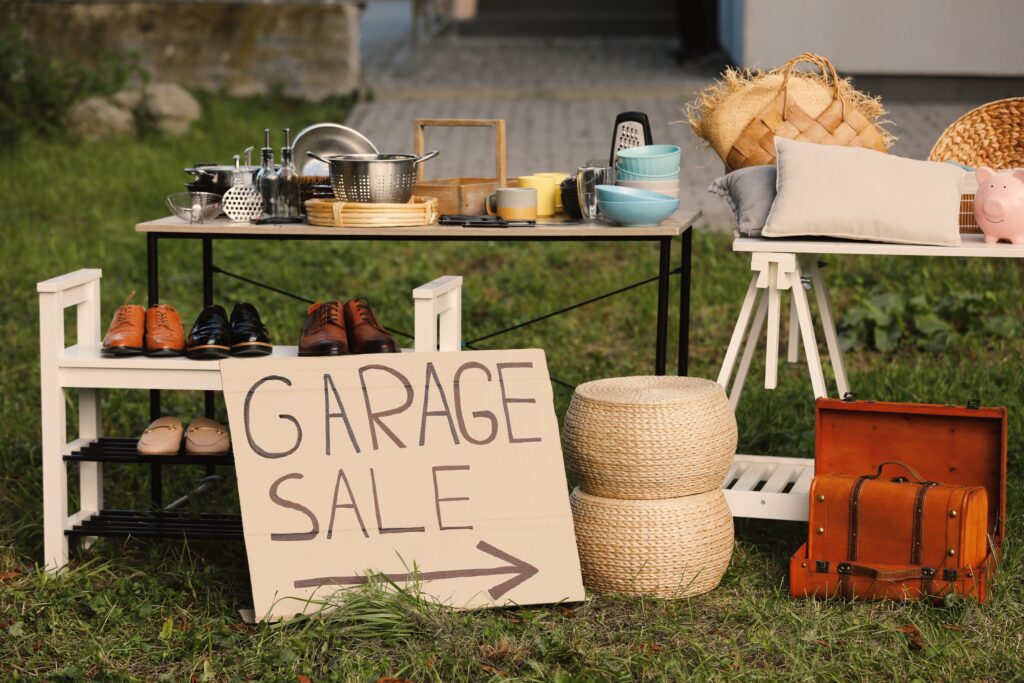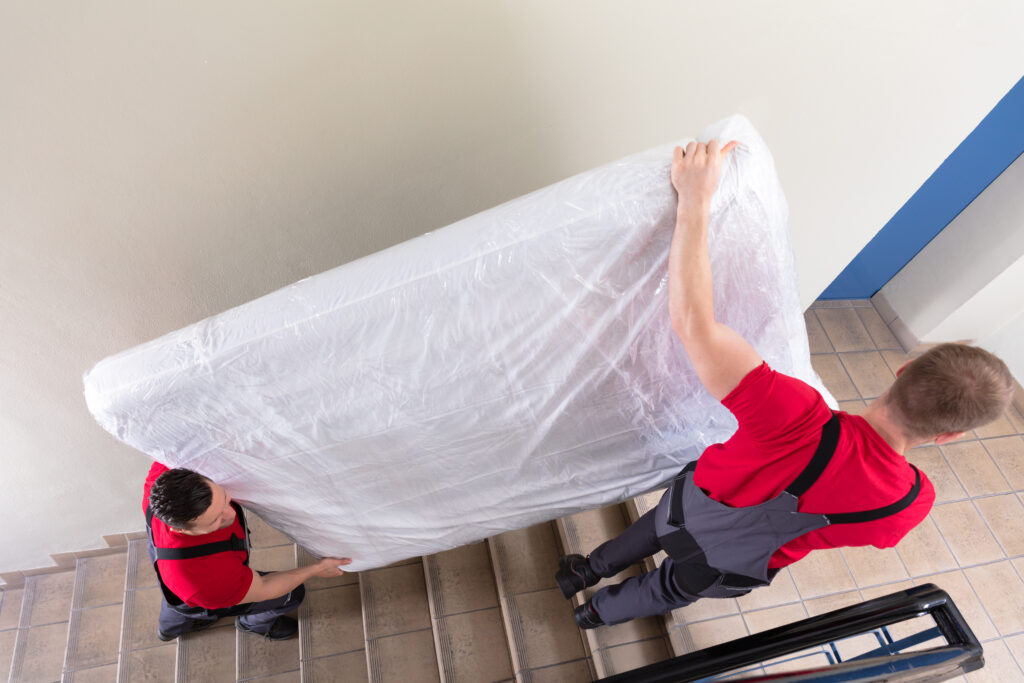Downsizing the wrong way could cost you thousands—here’s how to do it right.

Downsizing sounds like a dream—less clutter, lower bills, and a fresh start. But if you’re not careful, it can turn into a financial and emotional nightmare. People assume it’s as simple as moving into a smaller space and tossing a few things, but the reality is way more complicated. Hidden costs pile up, sentimental items slow you down, and one wrong move could cost you thousands.
If you’ve ever stood in front of a packed closet wondering where to start, you’re not alone. Downsizing isn’t just about getting rid of stuff—it’s about making smart choices that protect your wallet and your sanity.
There are insider tricks that can save you a fortune and make the entire process smoother. Before you make a move, here’s what you need to know to downsize the right way.
1. Selling your stuff the wrong way could cost you thousands.

Most people assume they can just throw their extra furniture and collectibles on Facebook Marketplace or have a quick garage sale. But here’s the problem—without knowing the real value of your items, you could be giving away thousands of dollars. Vintage furniture, rare books, and even old Pyrex bowls can sell for way more than you think, appraiser William Huff reminds on his website. Instead of rushing, take the time to research prices on eBay, consignment shops, or specialty groups online.
Estate sale companies can also do the work for you and bring in serious cash. And don’t forget about tax deductions—donating to the right places can save you money come tax season. The key is to know what’s worth selling, what’s worth donating, and what should go straight to the junk pile.
2. Ignoring hidden moving costs will wreck your budget.

Moving into a smaller place should mean saving money, right? Not always. There are sneaky costs lurking in the process that can drain your downsizing budget fast, as mentioned at Experian. Movers charge extra for heavy items, tight staircases, and even long driveways. Storage units seem like a great short-term fix, but those monthly fees add up fast. Then there’s cleaning, repairs, and new furniture that actually fits your smaller space.
Before you even list your house, get quotes from movers, look into DIY rental options, and decide what you can actually take with you. Downsizing should be a money-saver, not a money-drainer. Being aware of these hidden costs will keep you from spending way more than you expected.
3. Letting emotions control your decisions will slow you down.

It’s easy to say you’ll be ruthless when decluttering—until you pick up an old baby blanket or flip through a stack of photos. Suddenly, everything feels impossible to part with. The truth is, emotional attachment is the biggest reason people struggle to downsize, as reported by the Downsizing Institute. But keeping everything out of guilt or nostalgia will only make your new space feel crowded and overwhelming.
Instead, take photos of sentimental items and create a digital memory album. If something is truly special, consider passing it down to a loved one who will appreciate it. Set limits—keep a small box of irreplaceable keepsakes and let the rest go. Downsizing isn’t about erasing your past. It’s about making room for your future.
4. Skipping a professional organizer could be a huge mistake.

You might think, “I don’t need help—I can handle this myself.” But professional organizers exist for a reason. They know exactly how to tackle clutter efficiently, make tough decisions easier, and maximize your new space, as suggested in the Zoe Report. Even hiring one for a single consultation can give you a game plan that saves you hours of stress. They also help with selling, donating, and hauling away items, which means less work for you.
If hiring someone isn’t in the budget, look for online courses or local workshops that teach downsizing strategies. The goal isn’t just to get rid of stuff—it’s to do it in a way that makes your life easier. A little expert advice can go a long way.
5. Not measuring your new space could lead to disaster.

Imagine spending money to move your favorite couch, only to find out it doesn’t fit through the door. Or realizing your king-size bed leaves no room for anything else. It happens all the time. Before moving, get exact measurements of every room, doorway, and storage area in your new home. Then, measure your furniture and decide what will actually work.
If something won’t fit, sell or donate it before moving day to save time and money. Use painter’s tape on the floor to visualize layouts before committing to anything. A little planning will keep you from dealing with the frustration (and cost) of replacing furniture after the fact.
6. Assuming storage units are a good solution will trap you.

It’s tempting to think, “I’ll just put this in storage for now.” But storage units are a money pit. Monthly fees add up fast, and before you know it, you’ve spent thousands to keep stuff you never actually use. If you’re struggling to let go of something, ask yourself: Will I ever really need this again? If the answer is no, it’s time to sell or donate it.
If you absolutely must use storage, set a strict time limit and commit to clearing it out by a specific date. Otherwise, you’re just paying to hold onto clutter.
7. Not planning where everything goes will make unpacking a nightmare.

Most people focus so much on getting rid of stuff that they forget to plan how to organize what they’re keeping. Without a system, unpacking becomes pure chaos. Before moving, group similar items together and label everything clearly. Use clear bins for storage so you can see what’s inside.
If you’re downsizing into a much smaller space, think about creative storage solutions—under-bed storage, vertical shelving, and multifunctional furniture will be your best friends. Downsizing doesn’t mean living in clutter. It means being intentional with what you keep and where it goes.
8. Rushing the process will lead to regret.

Downsizing isn’t something you should do in a weekend. When you rush, you make bad decisions—throwing away things you later wish you’d kept or keeping things you don’t need. Give yourself time to go through everything thoughtfully.
Start small, tackling one area at a time. If you feel overwhelmed, take a break instead of making emotional choices. A slow and steady approach prevents regret and ensures you end up with only what truly matters.
9. Overlooking tax breaks means leaving money on the table.

Donating items isn’t just a good deed—it can also save you a ton of money. Many charities provide tax-deductible receipts for donations, which can significantly reduce your tax bill. If you’re donating valuable items, like artwork or collectibles, get them appraised first to ensure you’re claiming the full value.
Keep records of all donations, including receipts and item lists. Every dollar counts when you’re downsizing, and this is one of the easiest ways to put money back in your pocket.
10. Underestimating emotional stress will catch you off guard.

Downsizing isn’t just about packing up boxes and moving into a smaller space—it’s a deeply emotional process that can hit you harder than expected. You’re not just letting go of things; you’re closing a chapter of your life. For many, a home represents years of memories, milestones, and personal history. Sorting through old belongings can bring up unexpected emotions—nostalgia, sadness, even anxiety. It’s completely normal to feel a mix of relief and grief at the same time.
That’s why it’s important to give yourself grace and not rush the process. Talk to friends or family members who’ve been through it. Remind yourself why you’re downsizing—less stress, more freedom, and a simpler life. When emotions feel overwhelming, take a break.
11. Thinking you can handle all the repairs yourself could cost you big time.

When preparing to downsize, many homeowners assume they can save money by tackling home repairs themselves instead of hiring professionals. While this might seem like a smart move, it often backfires. Small fixes like painting or patching holes may be doable, but larger issues—like plumbing, electrical work, or structural repairs—can turn into expensive disasters if not handled correctly.
Even minor cosmetic updates, like replacing countertops or refinishing floors, can quickly spiral into unexpected costs and delays. Plus, poorly done DIY repairs can hurt your home’s value and scare off buyers. Instead of risking costly mistakes, get a professional home inspection before listing your house. Prioritize necessary repairs, and consider hiring experts for anything beyond your skill level.
12. Thinking of downsizing as a loss instead of a gain will hold you back.

Too many people resist downsizing because it feels like they’re giving up something—space, belongings, or even status. But the truth is, downsizing is one of the best things you can do to improve your quality of life. Think about it: fewer rooms to clean, lower bills, and less clutter weighing you down. Instead of seeing it as losing something, reframe it as gaining freedom.
You’re gaining time for experiences instead of spending it maintaining a large house. You’re gaining financial flexibility by cutting unnecessary costs. You’re gaining mental clarity by living in a space that only holds what truly matters to you. It’s all about mindset. If you go into downsizing dreading it, it’ll feel like a burden. But if you see it as an opportunity, you’ll wonder why you didn’t do it sooner.
